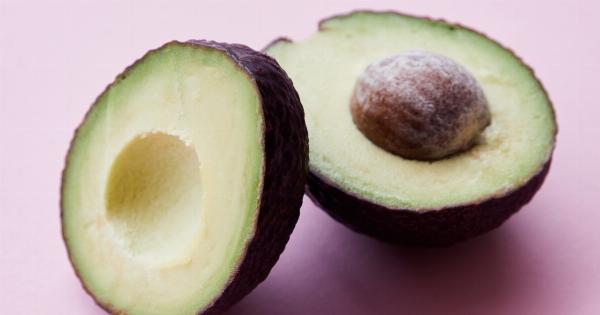With the increasing focus on sustainability and climate change, adopting eco-conscious habits has become more important than ever. Every aspect of our lives, including our food choices, can have a significant impact on the environment.
As individuals, we can play a part in reducing our carbon footprint by adopting more eco-friendly eating habits.
Why is an Eco-Conscious Meal Important?
Food production and consumption have a significant environmental impact. The current industrialized food system contributes to greenhouse gas emissions, deforestation, loss of biodiversity, water pollution, and soil degradation.
By making sustainable food choices, we can take steps towards mitigating these environmental issues. An eco-conscious meal aims to minimize resource consumption, reduce waste, and prioritize the conservation of natural ecosystems.
1. Locally Sourced Ingredients
One of the key aspects of an eco-conscious meal is sourcing ingredients locally. Choosing locally grown or produced foods can significantly reduce the carbon footprint associated with transportation.
By supporting local farmers and businesses, we contribute to the local economy and help preserve farmland from urban development. Additionally, locally sourced foods are often fresher, as they travel shorter distances, and promote biodiversity by encouraging crop diversity.
2. Seasonal Fruits and Vegetables
Eating seasonal fruits and vegetables is not only a nutritious choice but also an eco-friendly one. When we consume produce out of season, it often needs to be transported from distant locations or grown in energy-intensive greenhouses.
By opting for seasonal produce, we decrease the energy required for production and transportation, reducing the associated carbon emissions. Supporting local farmers’ markets and community-supported agriculture (CSA) programs is an excellent way to access a variety of seasonal produce.
3. Sustainable Proteins
Choosing sustainable proteins is integral to an eco-conscious meal. Animal agriculture is a significant contributor to deforestation, greenhouse gas emissions, and water pollution.
By reducing our consumption of animal products, we can positively impact the environment. Incorporating plant-based proteins, such as legumes, nuts, and tofu, into our diets can be not only nutritious but also more sustainable. When consuming animal products, opt for those sourced from local, organic, and ethically raised animals.
4. Minimize Food Waste
Minimizing food waste is essential when striving for an eco-conscious meal. Roughly one-third of all food produced globally is wasted, leading to unnecessary resource depletion and increased greenhouse gas emissions.
To reduce food waste, plan meals in advance, use leftovers creatively, and store food properly. Composting organic waste is another greener option that helps reduce methane emissions from landfills and provides nutrient-rich soil for gardening.
5. Opt for Organic and Pesticide-Free
Choosing organic and pesticide-free foods is not only beneficial for our health but also for the environment. Conventional agriculture often relies on synthetic pesticides and fertilizers, which can harm ecosystems, pollinators, and human health.
Organic farming practices prioritize soil health, biodiversity, and natural pest control methods. By opting for organic options, we support sustainable farming practices that protect our planet’s natural resources.
6. Reduce Single-Use Packaging
Single-use packaging contributes significantly to waste and pollution. Opting for products with minimal or reusable packaging is an important step towards an eco-conscious meal.
Buying in bulk, bringing your own reusable bags and containers, and avoiding individually packaged items can significantly reduce packaging waste. Additionally, choosing products made from sustainable materials, such as glass or biodegradable packaging, can further minimize environmental impact.
7. Cook from Scratch
Preparing meals from scratch allows us to have better control over the ingredients we use and reduces our reliance on processed foods. Processed foods often come with excessive packaging and contain artificial additives.
By cooking at home, we can tailor our meals to include more plant-based ingredients, whole grains, and reduce added sugars and unhealthy fats. Home-cooked meals not only promote healthier eating habits but also reduce the environmental impact associated with the production and transportation of processed foods.
8. Mindful Portion Control
Practicing mindful portion control is critical in an eco-conscious meal. Overeating not only has negative implications for our health but also contributes to unnecessary food waste.
By evaluating our portion sizes and consuming only what our bodies need, we can reduce excess food consumption and minimize food waste. Planning meals and cooking in appropriate quantities can also help in controlling portion sizes and reducing leftovers that might go to waste.
9. Complement with Renewable Beverages
When considering an eco-conscious meal, it’s important to look beyond just the food. Beverage choices can also have a significant environmental impact.
Opting for renewable beverages like tap water, herbal teas, or fair-trade coffee can help minimize the carbon footprint associated with energy-intensive beverage production or transportation.
10. Support Sustainable Fishing Practices
For seafood lovers, supporting sustainable fishing practices is essential for maintaining marine biodiversity and the health of our oceans.
Overfishing, destructive fishing methods, and poorly managed aquaculture operations can lead to the depletion of fish stocks and harm delicate marine ecosystems. By choosing sustainably sourced seafood certified by organizations like the Marine Stewardship Council (MSC), we promote responsible fishing practices that help preserve ocean ecosystems for future generations.
In Conclusion
Adopting eco-conscious eating habits is a powerful way to contribute to the health of our planet.
By incorporating locally sourced ingredients, seasonal produce, sustainable proteins, and minimizing food waste, we can make a positive impact on the environment. Remember, small changes in our daily food choices can lead to significant cumulative effects. Let’s strive for optimal eco-conscious meals that not only nourish our bodies but also support a greener and more sustainable planet.






























